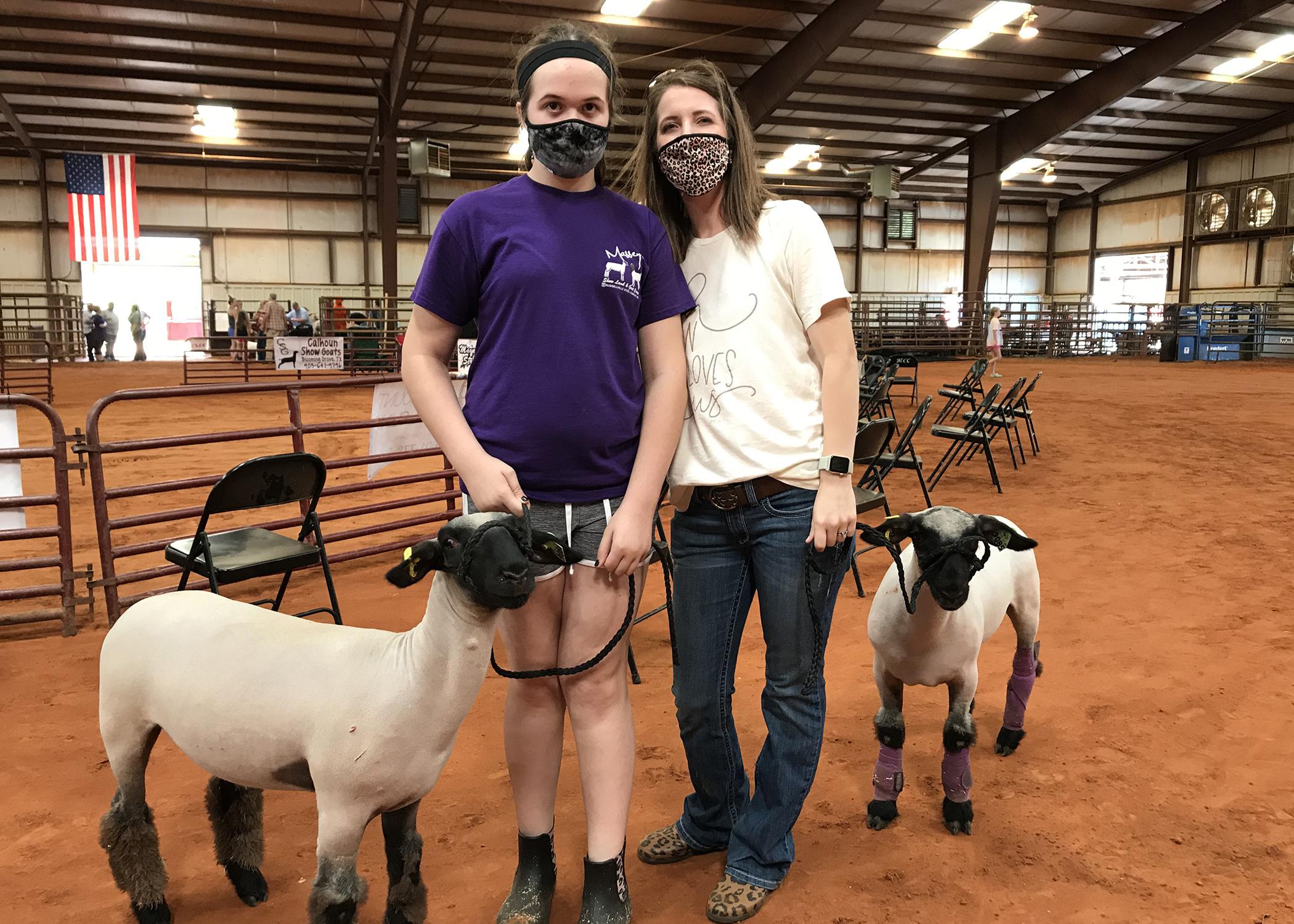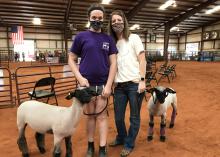Information Possibly Outdated
The information presented on this page was originally released on September 15, 2020. It may not be outdated, but please search our site for more current information. If you plan to quote or reference this information in a publication, please check with the Extension specialist or author before proceeding.
4-H Livestock Show modified for safety
JACKSON, Miss. -- Many of Mississippi’s annual traditions were interrupted this year due to COVID-19, but the Mississippi State Fair Livestock Show will go on.
One of the fair’s main attractions, the livestock show, is supervised by the Mississippi State University Extension Service, which also administers the state’s 4-H Youth Development Program. The Mississippi State Fair, which is hosted by the Mississippi Department of Agriculture and Commerce (MDAC), is scheduled to take place Oct. 7-18, barring a change in plan closer to the starting date.
Organizers of the competition have worked for several months planning for both an in-person and a virtual option to ensure the state’s junior livestock exhibitors will have an opportunity to show their animals safely this October.
MSU Extension is finalizing strict safety modifications to the more likely in-person version of this year’s event. Since the pandemic began, MSU Extension livestock specialist Dean Jousan has led a coordinated effort of 14 contest superintendents to develop protective measures for the participants, their families and all show volunteers.
“As someone who grew up in 4-H showing livestock in regional and national shows, I am appreciative of the young people showing these animals and the time and finances they and their families invest in their livestock projects,” Jousan said. “Our team owes these 4-H’ers the opportunity to get experience competing and receiving feedback on their showmanship and what adjustments they can make for future contests. We are committed to keeping safety the top priority for the participants while still having a show.”
Contingency plans that will differ from the show’s usual operations include:
- Livestock barn access will be limited to 4-H and FFA youth, volunteers and family members with wristbands. A phone number will be made available to contact the show office during the fair. Former barn entrances and exits will be closed off to the general public;
- MDAC will staff additional security to enforce mask requirements and watch for social clusters;
- Barricades will be placed between the midway and the show barns;
- Masks and 6-foot social distancing will be required in the show barns, and personal protective equipment and hand sanitizer will be on hand for those who are allowed in the area. The beef cattle shows will be broadcast online for the public to decrease the number of spectators in the seating areas;
- The numbers of animals allowed in a show ring at one time will be reduced;
- Exhibitors can show inside the ring without their mask if they choose, as long as they are 6 feet apart in the ring. Masks are otherwise mandatory at all times;
- The check-in process will be restructured to follow social distancing guidelines. Plans will be shared as they are finalized;
- Paper copies of programs will be limited to prevent virus transmission;
- The Mississippi Coliseum and Kirk Fordice Center will be off limits;
- The number of MSU Extension agents staffing the show will be reduced from the usual 90 to about 40, with additional support from Agricultural Education Teachers, Farm Bureau, MDAC, the Mississippi Cattlemen’s Association and the Mississippi Poultry Association;
- All MSU Extension personnel participation in supporting the Livestock Show is voluntary, and Extension staff working on the fairgrounds will be required to travel alone, stay in their own hotel rooms and isolate before and after the show;
- To prevent social gatherings and reduce public exposure time, steers and commercial beef heifers will be allowed to show within the breed type in which they were entered.
- No classification will take place before the show. Judges will be notified of the classification guidelines and will be asked to consider those when making selections in these shows. The usual three classifiers will be reinstated for the 2021 Dixie National Livestock Show;
- Mouthing of commercial beef heifers, wether dams and commercial meat goat does and checking of horns for commercial beef heifers, market steers and market goats will be limited to those animals that are weighed back in their class at the show.
- The starting time for the Beef Showmanship component scheduled for Oct. 11 will be moved to 9 a.m. to allow for social distancing between age groups;
- MSU Extension is handling entries for the Pretty Cow Contest but will turn over all other aspects of the contest to MDAC; and
- If the fair is canceled, MSU Extension has in place a contract with an agri-business website firm to host the show online, complete with a custom virtual entry form and video upload page for livestock projects under the provided qualifying criteria.
The 4-H Village Exhibit typically featured at the fair will be held virtually this year.
Associate Extension Director Paula Threadgill, who oversees 4-H, said preparation for each state fair livestock show is a wrap-around process that begins at the conclusion of the previous one. While the upcoming edition is no different, the work put in ahead of time has been doubled since April to ensure a backup plan was ready if needed.
“Pulling off an in-person event under these conditions is impossible without the collaborative efforts and dedication of our Extension agents along with those of our partners, including MDAC, Farm Bureau and the Mississippi Cattlemen’s Association,” Threadgill said.
4-H youth development instructor Cobie Rutherford said 4-H is committed to the health and safety of its participants as they learn important life skills.
“For decades, MSU Extension has supported 4-H activities and youth livestock shows at Mississippi State Fair,” Rutherford said. “Youth livestock projects are a significant part of 4-H programming as they teach life skills, work ethic, character building and sportsmanship -- all of which contribute to positive youth development.”





